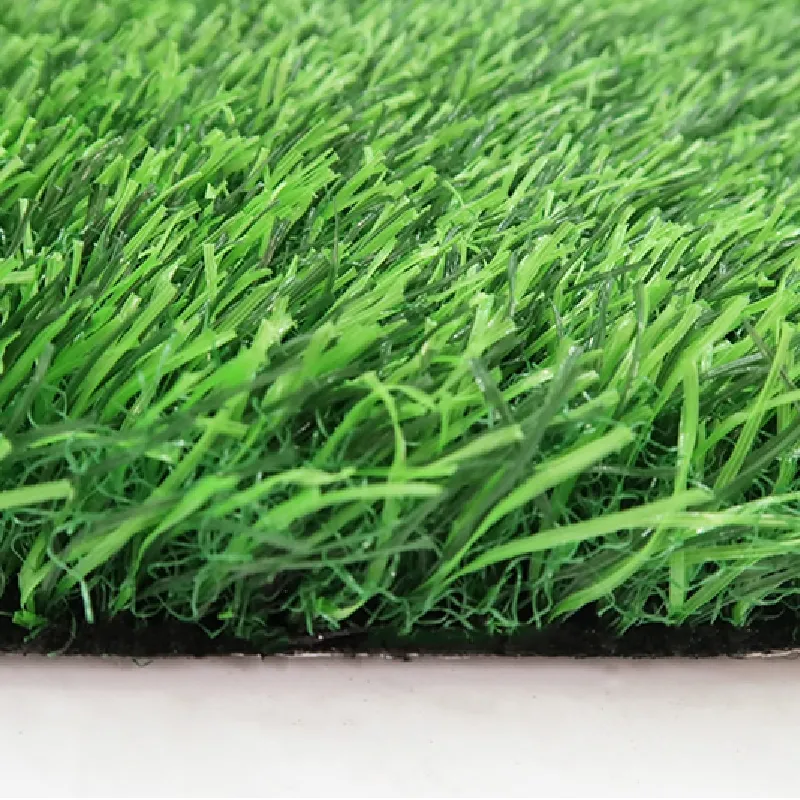
- Afrikaans
- Arabic
- Belarusian
- Bengali
- Czech
- Danish
- Dutch
- English
- Esperanto
- Estonian
- Finnish
- French
- German
- Greek
- Hindi
- Hungarian
- Icelandic
- Indonesian
- irish
- Italian
- Japanese
- kazakh
- Rwandese
- Korean
- Kyrgyz
- Lao
- Latin
- Latvian
- Malay
- Mongolian
- Myanmar
- Norwegian
- Persian
- Polish
- Portuguese
- Romanian
- Russian
- Serbian
- Spanish
- Swedish
- Tagalog
- Tajik
- Thai
- Turkish
- Turkmen
- Ukrainian
- Urdu
- Uighur
- Uzbek
- Vietnamese
golf green synthetic grass
Dec . 29, 2024 05:00 Back to list
The Benefits of Synthetic Grass for Golf Greens
In the world of golf, the condition of the putting green can make or break the game. For many courses, maintaining natural grass can be both costly and labor-intensive. This has led to an increasing interest in synthetic grass, which offers a range of benefits for golf greens. In this article, we'll explore the advantages of synthetic grass for golf courses, from sustainability to enhanced playability, and discuss why more courses are making the switch.
Sustainability and Environmental Benefits
One of the most compelling reasons for golf courses to consider synthetic grass is the sustainability aspect. Natural grass requires a significant amount of water, often leading to large bills and a strain on local water resources. With the increasing occurrences of drought in many regions, managing natural grass can become a complicated and expensive endeavor.
Synthetic grass, on the other hand, requires virtually no water once installed. This not only conserves water but also reduces the need for fertilizers, pesticides, and herbicides, which are harmful to the environment. Golf courses that transition to synthetic grass can significantly decrease their carbon footprint, contributing to broader environmental goals. Additionally, the durability of synthetic grass means that it can last for many years without needing replacement, adding to its long-term sustainability.
Consistency in Playability
One major advantage of synthetic grass is the consistent playing surface it provides. Golfers are highly sensitive to turf conditions, and natural variations in the growth of grass can lead to inconsistent putting experiences. Synthetic grass is engineered to offer a uniform surface, which means that golfers can expect similar performance regardless of the time of year or weather conditions.
This consistency is particularly beneficial for professional tournaments where precision is crucial. With synthetic greens, courses can ensure that the ball rolls true without unpredictable inconsistencies caused by natural grass. Moreover, the reduced maintenance requirements mean that grounds crews can focus their efforts on other areas of the course, ensuring an overall better experience for players.
Reduced Maintenance Costs
golf green synthetic grass

Maintaining natural grass is labor-intensive and costly. Mowing, watering, aeration, and pest control are just a few of the many tasks that require time and money. Synthetic grass, however, can drastically reduce these maintenance requirements. Once an installation is complete, the ongoing upkeep is minimal, often only requiring occasional brushing and cleaning to keep the surface in excellent condition.
By cutting down on maintenance costs, golf courses can redirect their financial resources towards other improvements, such as upgrading facilities, enhancing customer service, or investing in marketing strategies to attract more players.
Year-Round Usage
Another significant advantage of synthetic grass is that it allows for year-round use of golf greens. In colder climates, natural grass can become dormant or damaged during winter months, preventing play. Synthetic grass mitigates this issue by providing a playable surface regardless of weather conditions. This means that courses can host events, promote lessons, and provide practicing opportunities all year long, maximizing their revenue potential.
Enhanced Aesthetics
Modern synthetic grasses are designed to mimic the look and feel of natural grass, providing an aesthetically pleasing environment for golfers and visitors alike. The vibrant green color and soft texture create an inviting atmosphere, which can enhance the overall experience of being on the course. Moreover, synthetic grass can be designed to accommodate various features, such as contours and slopes, further adding to the visual appeal of the greens.
Conclusion
In conclusion, the rise of synthetic grass for golf greens offers a myriad of benefits that cannot be overlooked. From environmental sustainability to cost savings, improved playability, and year-round usability, more golf courses are recognizing the advantages of making the switch. As technology continues to evolve in this field, the quality and performance of synthetic grass will only get better, making it a compelling choice for golf course management looking to elevate their facilities while minimizing environmental impact. The future of golf greens appears to be increasingly synthetic, and it is a trend that is likely here to stay.
-
The Benefits of Artificial Turf for Indoors
NewsJul.15,2025
-
How Artificial Grass Suppliers Ensure Quality Products
NewsJul.15,2025
-
Artificial Grass and Pets: A Space for Relaxation
NewsJul.08,2025
-
Balcony & Outdoor Decoration with Artificial Grass
NewsJul.08,2025
-
Best Indoor Artificial Grass for Home
NewsJul.07,2025
-
Best Pet Turf for Dogs: Safe & Durable Artificial Grass Options
NewsJul.07,2025
Products categories









